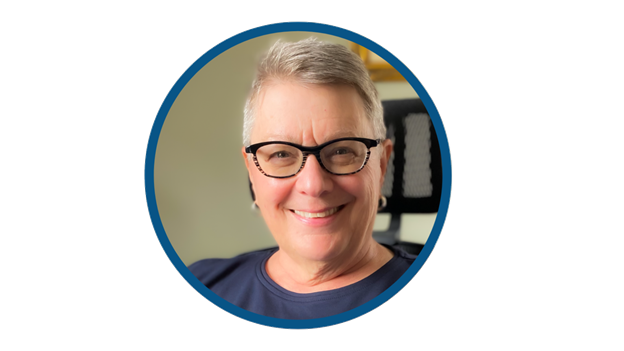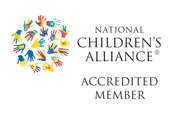Mental Health Awareness and our Critical Needs
May 24th, 2022
May is when flowers are blooming at full speed, bees are buzzing, and birds are singing. The longer sunny days bring a lightness to people’s steps as they stroll around our beautiful community. May is also National Mental Health Awareness Month, which allows us to shine a light on the fact that in the United States between 17-20% of people will receive a mental health diagnosis.
According to the National Alliance on Mental Illness, it is important to raise awareness about what a mental illness is. A mental illness is a condition that affects a person’s thinking, feeling or mood. These diagnoses or conditions could impact someone’s ability to relate to others or function in their activities of daily living. Each person, regardless of the diagnosis, will have different experiences. While primary care physicians can prescribe some medications to provide support to certain conditions, it is the work of behavioral health providers to truly support those who have received such diagnoses.
Beyond long-term diagnoses or conditions, every day people have experiences where they would benefit from the support of a behavioral health professional. Trauma, loss, stress from work, fears, phobias, and substance misuse; there is no shortage of reasons why someone would benefit from a provider. However, there is a fear associated with seeking professional health due to the stigma surrounding why someone may seek out a provider. At Children’s Cove we depend on our trauma informed providers to support children who have been victims of crime, as well as support their non-offending family members. And yet, even with this critical reason for support, we have a serious challenge on our hands.
Across Cape Cod and the Islands, parents experience immense difficulty when seeking accessible services for their children. Whether searching for support groups, outpatient therapists, mentors, in-home therapists, or other wrap-around services, we are tremendously under capacity to serve our children. Depending on the services, health insurance, and location a family lives, there could be a 3-6 month wait time (or more) for a child to begin receiving services. While this is not a situation unique to the Cape and Islands, it is certainly an exacerbated one.
There needs to be a greater awareness by the community at large about behavioral health care. When it comes to the need for services in our community, a unified voice needs to say, ‘We are here, and we have needs on Cape Cod and the Islands’ to state agencies and elected officials.”
A primary issue in each town or region is a lack of child-focused providers and organizations. And in those organizations which do provide services for children the capacity is already at its limit. The challenges of living in our region (high cost of living, lack of attainable housing, barriers to transportation) have impacted the behavioral health and human services field making it difficult for agencies to hire professionals who work with children. In response to this crisis of children’s behavioral health services and support network, the Children’s Behavioral Health Working Group (CBHWG) was formed to serve the Cape and Islands.
The CBHWG started as a grassroots movement in 2019 by a local foster parent who discovered how difficult it was to get services for children in her care. Through conversations with other foster parents and young families, she realized how large-scale the problem was and decided she wanted to sound the alarm to the community. Since 2019, the group has grown to include dozens of individuals and organizations and has hired a coordinator for the initiative.

Barbara Dominic, LICSW, works as a consultant for Barnstable County, and is the manager of the Children’s Behavioral Health Working Group. Barbara, a licensed social worker, and counselor in a local school district, was drawn to the group and its mission because she knew how hard it was for children to gain access to services.
With her coordination, the CBHWG has become a collaboration of 25-30 human service agencies, where behavioral health providers and community stakeholders work together to increase access to, and maximize the efficacy of, the Cape and Islands behavioral health system of care for children, adolescents, and young adults ages 0-18. This is accomplished through collaboration, advocacy, education, and training. This group meets monthly to focus on training and education for behavioral health providers in the community, allowing time and the opportunity to work together to solve the challenges around service shortages for children. The participants also gather information about current needs, trends and pending legislation which impact behavioral health services for children and families in our community.
The CBHWG has gained traction at the state house with regular attendance of a representative from Senator Julian Cyr’s office who keeps the group apprised of any legislation which may impact services in our region. The group also seeks to strengthen and build a collaboration of providers to reduce the practice of organizations working in silos, which aims to maximize the efficacy of each organization’s service to the community. The CBHWG also discusses how to effectively advocate for increased reimbursement rates, workforce salaries, barriers to employment such as housing and processional licensing.
When speaking with Barbara about the work of the group, one of the key points she made was that there needs to be a greater awareness to the community at large about behavioral health care. She also believes that when it comes to the need for services in our community, we need to speak in a unified voice that says, “we are here and we have needs on Cape Cod and the Islands,” to state agencies and elected officials. By talking about this issue, rather than keeping it in the shadows, the stigma of mental health can be addressed and the barriers to access can begin to come down. Barbara also stated that, as a community, we need to prioritize our children and young people. For their health, for the health of our community, we need to place an emphasis on the importance of mental health and needed services for children both now and in the future.
As a community it can be hard to prioritize mental health services and support. We know as a community we have so many issues: wastewater, climate change, healthcare, traffic, the economy, and a large senior population who have very specific needs. This is where the CBHWG can also provide support. The working group, and Barnstable County government, will be working in the near future to perform a thorough needs assessment of children’s behavioral health services in our community. This study will provide supportive data to understand the gaps in services that our communities need for effective advocacy and awareness to support our children’s mental health.
Studies and assessments take time, and many of our children need services now. When community members ask Barbara, “what can we do about this now?” she says it can be hard to answer with just one thing. So, she simply recommends that people “…be aware of the services for children which are available in your community and see if they are accessible. Learn more about what supports children in your community, or if there is a lack of services. And listen to what discussions take place at town meeting regarding children, or regarding supportive services for children and young families in your community. If you don’t hear any, perhaps there is an opportunity for one.”
Please email Barbara to learn more about the Children’s Behavioral Health Working Group, or ways you can support children’s behavioral health in our community.






